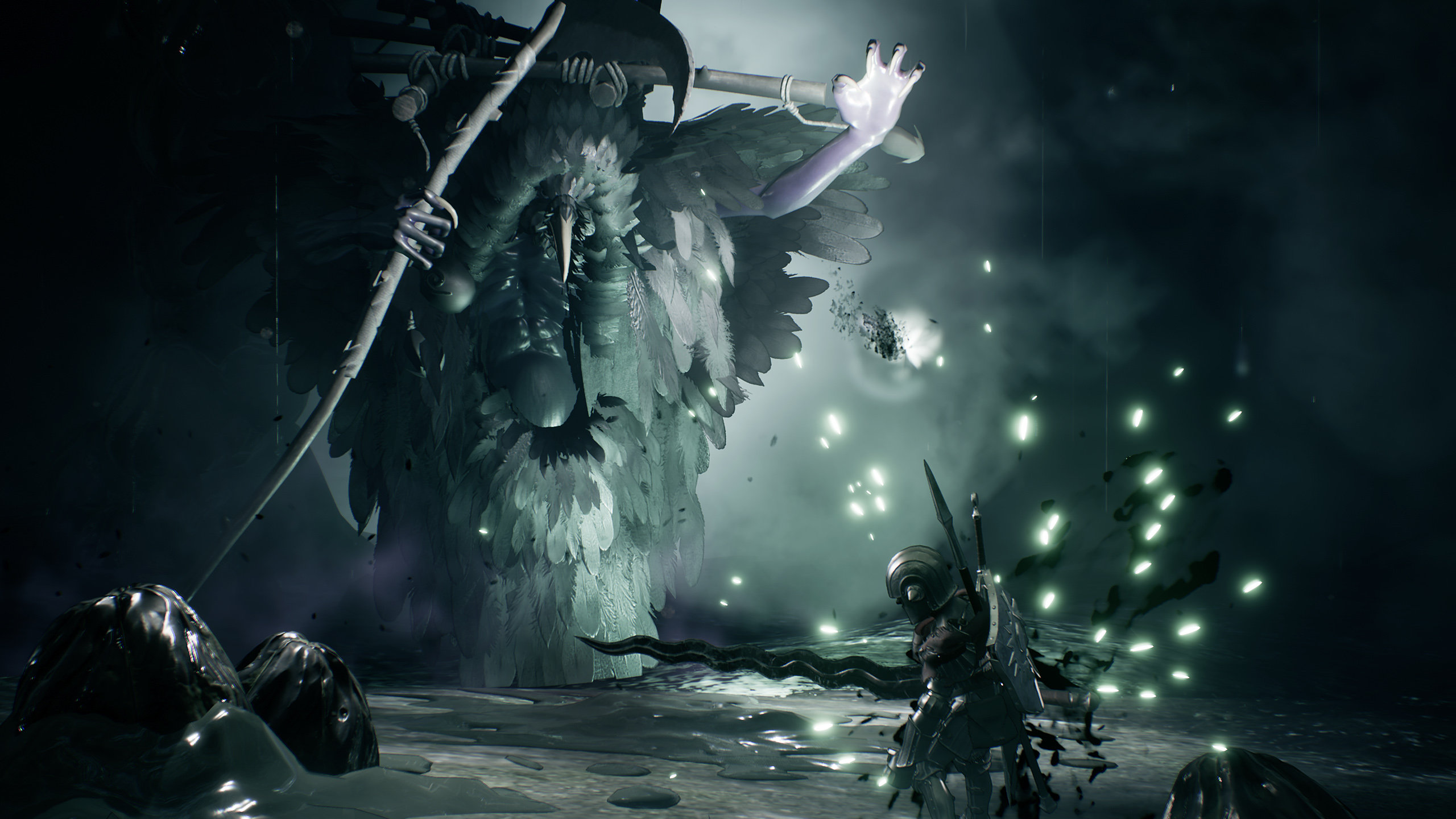Sinner: Sacrifice for Redemption is all boss fights, and each one makes you weaker
The price for redemption is sacrificing your abilities.

Sacrifice should be painful. That’s the main tenant of Sinner: Sacrifice for Redemption, an action combat boss battler self-described as Souls-inspired. That label comes with most of the typical assumptions: combat that focuses on dodging and parrying, managing stamina and consumable usage, and larger-than-life bosses who go through several phases during a fight.
There are a couple notable differences between Sinner and Souls, though. The developers at Shanghai-based Dark Star are big fans of the Dark Souls series but want to pare down the 60-plus hour timestamp often expected from the genre to ten to twenty hours of high-intensity boss fights, and each fight makes you weaker, not stronger.
The original sinner
Adam, the main character, is pitted against seven main bosses and an eighth final boss, each representing a time he’s screwed up. By fighting each boss, Adam atones for his sins and may (but also may not?) decide to change his ways. Exactly what Adam’s worldly transgressions are and what the consequences are for failing to fully repent will be uncovered when the game releases.
I got the chance to take on three of the seven bosses at PAX East: Envy, Greed, and Gluttony. Envy is clad in a battle dress, swapping between a melee-heavy phase and a ranged set of lighting attacks. Greed is a scythe-wielding plague witch. Gluttony (my personal favorite of the crew on display) is a giant brute with a belly full of teeth. The stomach mouth can snatch you up, gnaw on you, and spit you out if you aren’t careful.

Sinner’s combat feels familiar, the way that it should given its inspiration. Envy, the dame in the iron dress, takes wide swings with her oversized rapier that you’re meant to dodge around. In her second phase she casts a couple different lightning skills. One consists of several lightning strikes that can be avoided by watching for reflections in the floor tiles. The other radiates sparks along the floor to sidestep.
Sinner’s offering to the genre is its leveling down concept. In the name of sacrifice, Adam must give up part of his strength to each boss he fights. For one it might be the number of health items you can carry, for another it might be your maximum health and stamina. The effects are cumulative. By the end of the game, Adam will be fighting the final boss beaten, broken, and without armor. For players who love punishment, Sinner will allow Adam to activate the full gamut of sacrifices from the beginning of the game if so desired.
Just desserts?
Aside from the leveling down, the main difference between Sinner and other Souls-inspired action games is that it really is just boss fights. There are no areas to explore and no basic enemies to practice on. Dark Star is positioning that as the game’s selling point. Skip the tedium and get to the good part. It sounds like an attractive prospect, initially, but after spending some time getting beaten on by each of the three bosses available at PAX, I’m questioning my own resolve.
Keep up to date with the most important stories and the best deals, as picked by the PC Gamer team.
In my own experience with the genre that is apparently Dark Souls, bosses serve as a necessary punctuation to the eventually infuriating experience of wading through normal enemies and areas. At the same time, after trying and dying a certain amount of times, the return to exploring is also a relief. Although Sinner cites Shadow of the Colossus as another influence, Colossus’ bosses are more like puzzles than endurance and dexterity challenges. The indomitable strength of Sinner’s bosses may tempt me into my own sins of Wrath without the ability to kick back and grind in between.
Still, with a protagonist named “Adam” and bosses modeled as the classic seven sins, I’m eager to find out the identity of the final, eighth foe. Adam himself, maybe? Whether Sinner's bosses-only structure and reverse leveling make it more or less compelling than other games that call themselves "Souls-likes" is yet to be seen, but either way it's a genuine attempt at reworking the formula.

Lauren has been writing for PC Gamer since she went hunting for the cryptid Dark Souls fashion police in 2017. She accepted her role as Associate Editor in 2021, now serving as self-appointed chief cozy games and farmlife sim enjoyer. Her career originally began in game development and she remains fascinated by how games tick in the modding and speedrunning scenes. She likes long fantasy books, longer RPGs, can't stop playing co-op survival crafting games, and has spent a number of hours she refuses to count building houses in The Sims games for over 20 years.

